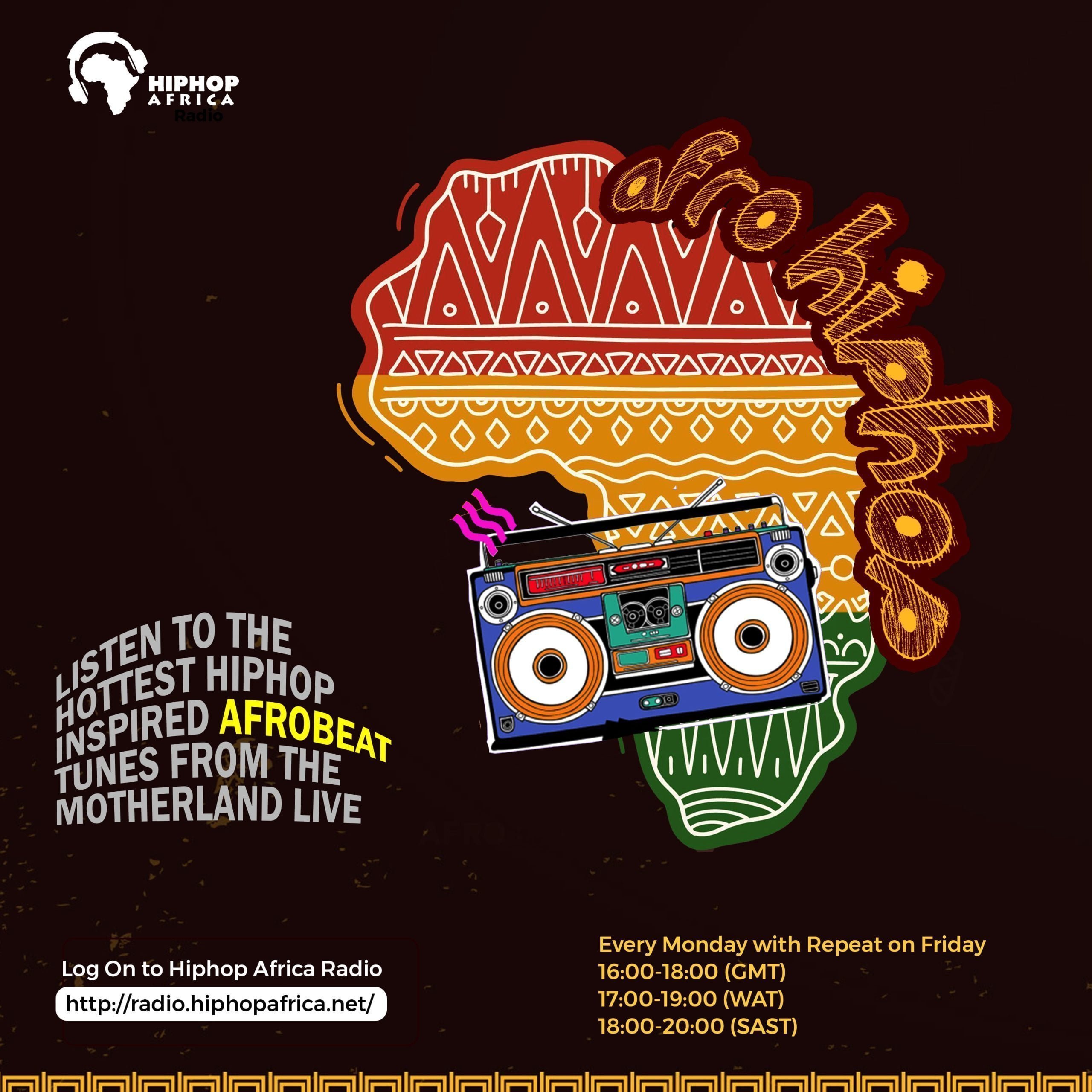A debut album can be an artist’s make-or-break moment—a chance to go all out and stake their claim, especially when you’ve already got a “Song of the Year” to your name. And if you’re wondering who I’m talking about, it’s none other than Usimamane, the rapper from Umlazi, Durban, who blasted his way onto the scene with his breakout hit “Cheque.” The track now sits comfortably at over 3.6 million Spotify streams and more than 2.9 million views on YouTube. It’s a song that had everyone chanting “Ha We Mah” for weeks. From filling up venues and securing international bookings to inspiring TikTok challenges for his verse on Mashbeatz & Wordz’s “Imali,” Usimamane has had a whirlwind of a year. His YouTube-exclusive single “Biggest Kulture” clocked over 420 000 views in just a month . There’s no doubt that it’s been a phenomenal year for him, but the real question is: does his debut album capture all of that?
Usimamane- : “Biggest Kulture” (Official Music Video)
Born Omuhleumnguni Usimamane in 2003, he dropped his first album, “20th: Days Before MAUD,” an ambitious project stacked with features from heavyweights like Anatii, K.O, Okmalumkoolkat, Slim Ego, YoungstaCPT, Mashbeatz, Tellaman, Tony Dayimane, and Sjava. As one of the most anticipated hip-hop releases in South Africa this year, the album had a lot riding on it, especially with critics and fans labeling him a “one-hit wonder.” When I saw the tracklist a week ago, I was especially excited to see Nasty C on it. Not just because Usimamane has been vocal about his admiration for Nasty C, but because I had my own selfish reasons too. When “Cheque” dropped, a lot of fans were quick to draw comparisons between his sound and that of Nasty C or Blxckie. A collaboration with Nasty C could either confirm those similarities or prove just how different their styles actually are, much like when Blxckie’s “YE 4X” featuring Nasty C dropped and everyone finally saw how distinct their sounds were.
Usimamane- “Cheque” (Official Music Video)
So, what do I think about this debut album? Well, before I get into that, let me take you back to where my fascination with Usimamane started. It was last year, in December to be exact, when I stumbled upon his single “10th October”—a heartfelt tribute to his grandfather that also served as a canvas for his lyrical bravado. The way he effortlessly weaved between Zulu and English, doing so with an undeniably cool flow, immediately caught my ear. His clever wordplay had me chuckling, and his rhythmic delivery made that track a serious contender for verse of the year in my book. With just that one song, I knew he was something special.From there, I was all in, diving into his collaborations like “Ifilimu” and “Woah” with Tony Dayimane, where Usimamane’s presence was impossible to ignore. His relentless work ethic was clear—posting freestyles on YouTube, TikTok and Instagram Reels, making sure you couldn’t miss him even if you tried. Then I came across his debut EP, “19th,” and it completely blew me away.
Thoughts on 19th EP
Listen to “19th EP” Here
Released in July 2023, 19th is a trap-infused extended play with a succinct runtime of 24 minutes across seven tracks. Despite its brevity, the project serves as an intriguing introduction to who Usimamane is as an artist while simultaneously shrouding him in mystery, leaving listeners eager for what’s next. Standout tracks such as “Gibela Sambe,” featuring Tony Dayimane, exemplify this. The title, translating to “Ride Along,” reflects Usimamane’s ambition to invite listeners on an intimate journey through his life’s experiences.
Another standout, and arguably the project’s most commercially successful track, is “Better,” which has amassed over 740,000 streams on Spotify. In this introspective piece, Usimamane reflects on how far he has come, offering a raw glimpse into his personal growth and evolution. A personal favorite from the EP is “The Steppers” featuring Luka Pryce, an infectious track devoid of hooks, where the raw, unfiltered lyricism portrays the complexities of township life. Both rappers deliver vivid bars that depict how success often alienates those who’ve ‘made it’ from their communities. This sentiment echoes Jay Z’s famous quote: *“People look at you strange, saying that you’ve changed, like you worked that hard to stay the same.”* The track captures the tension between ambition and the expectations of those left behind—a challenge that comes with fame.
Other standout tracks include “Ghost,” which features Qwellers collective members LaCabra and Lowfeye, and “Phey’kwabo.” These songs bring a fresh, innovative flavor to South African hip-hop, with Usimamane deftly incorporating Durban slang and the Zulu language in a way that feels both creative and forward-thinking. This approach not only works well for Usimamane but also mirrors the success of fellow Durban artists like Lowfeye, LaCabra, Blue Pappi, and Leodaleo, who have similarly championed this distinct regional sound.
With a string of successful singles, impactful features, and the critically well-received 19th EP, expectations for Usimamane’s debut album were naturally high. Was the pressure too much for the young star? Perhaps, but that’s the nature of the game. The stakes were raised even further when, just a day before Usimamane’s album release, acclaimed Pretoria rapper A-Reece announced the drop of his mixtape “Kill The King” on Friday the 13th—an all-too-clear reminder that hip-hop remains a competitive, unforgiving space where every move matters.
Thoughts on 20th: Days Before MAUD
Listen to “20th: Days Before Maud” here
Allow me a moment to gather and present my reflections with the clarity they deserve. The album, for me, is decent but somewhat underwhelming. While not without merit, it lacks the cohesion and narrative flow that could elevate it from mediocrity to greatness. It feels like the work of an artist still grappling with the full scope of his star power. Usimamane’s true talent shines when he weaves contemporary trap with the vibrant soundscapes of South African hip-hop. However, on this project, he leans too heavily into Atlanta-style trap, overshadowing his more distinctive qualities.
While there are undeniable highlights, the overall experience lacks fluidity. The album’s sequencing disrupts its natural progression, making it difficult to enjoy as a cohesive body of work. A prime example is the jarring transition from “The Kulture” to “Upete” featuring Slim Ego and Okmalumkoolkat. Despite both being strong contenders with potential to chart on radio, the juxtaposition feels forced. I believe the hard-hitting trap energy of “The Kulture” could have set the tone for tracks like “Discounts” featuring YoungstaCPT and “Dangerous” featuring CaseKlowzed, maintaining a thematic and sonic consistency. Instead, “Star” featuring Morena, although heartfelt in its message to his mother, feels out of place due to its upbeat, pop-inflected sound.
This lack of cohesion speaks to a broader issue: Usimamane’s trap efforts fall flat, feeling derivative rather than innovative. The album’s heavy reliance on familiar Atlanta trap elements, particularly in tracks like “Can’t Hang” and “21,” fails to showcase Usimamane’s individuality. It’s as though the artist is stuck in the shadows of his influences, such as Gunna and the YSL crew, rather than forging his own path. This over-familiarity detracts from the emotional and creative impact the album could have had.
That said, 20th: Days Before MAUD does have its high points. “Cheque” remains a refreshing track with an infectious energy, and its smooth transition into “Bank” featuring ANATII and Tony Dayimane is one of the album’s most well-executed moments. The production on “Bank” feels meticulously crafted, with its rolling 808s, sharp hi-hats, and layered vocal hooks that strike a balance between braggadocio and celebration. ANATII’s hook, delivered in both English and Xhosa, brings a vibrant dynamism to the track, while Tony Dayimane’s effortless Zulu flow adds a sense of lyrical dominance and authenticity. Usimamane himself uses this song to celebrate his wins—“From a cheque to a bank, I need it all,”—a clear nod to his hunger for more success. The beat switch at the two-minute mark, intensifying with heavier trap elements, breathes new life into the track, creating a fresh layer of intrigue. This versatility in the production makes “Bank” one of the album’s finest moments, exemplifying how collaborative chemistry and thoughtful production can elevate a track beyond its core elements.
However, not all collaborations hit the mark. “Vegan” featuring Tellaman and Mashbeatz lacks originality, sounding like a recycled version of past Tellaman and Nasty C collaborations. The track’s stagnant production, with its predictable trap cadence and repetitive synths, feels uninspired. It’s a missed opportunity for Usimamane to push the sonic boundaries and experiment with something fresh. The themes of newfound success and struggle, though essential to his narrative, are delivered in a formulaic and surface-level way. The repetition in songs like “Can’t Hang” leaves little room for deeper introspection or emotional depth, further diminishing the album’s overall impact.
Where the album does truly shine, however, is in moments of vulnerability and storytelling. “Uvalo” featuring Sjava is a standout track that merges emotional rawness with lush, atmospheric production. The song begins with a haunting voice memo of a woman pleading for Usimamane’s vulnerability, her voice breaking with palpable emotion. The sparse, piano-driven beat allows Usimamane’s introspective lyrics to take center stage.Sjava’s contribution adds a rich South African texture, with his poignant storytelling and soulful delivery elevating the song’s emotional weight. It’s in this raw openness that Usimamane’s talent truly emerges, creating a connection with the listener that feels deeply human.
While the collaboration with Mashbeatz and Tellaman may have missed the mark, Usimamane’s partnership with K.O stands out as a defining moment on the album. The song , titled “Uphambene” (which translates to “You’re Crazy”), showcases a powerful synergy between a rising star and a veteran with legendary status. The production leans heavily into the hard-hitting, signature sounds of Durban trap, with pounding 808s and gritty synths that perfectly set the tone.
Lyrically, Usimamane asserts his loyalty to himself, his family, and his hometown, boldly calling out anyone who dares question his allegiance. K.O, on the other hand, delivers a masterclass in rap bravado, flaunting his longevity and dominance in the game. His bars, such as “Smoking on my opps nyaka wonkhe, that’s a long 4/20,” underscore his unshakeable confidence, further cementing his legendary status. “Uphambene” serves as a seamless fusion of youthful ambition and seasoned mastery, making it one of the album’s standout moments.
Another highlight is “Biggest Kulture,” a track where the production truly stands out. The song’s ethereal, hymn-like background vocals and mellow, introspective beat create a rich sonic palette, allowing Usimamane to reflect on his journey from obscurity to stardom. Lines like “Used to eat Shibobo, now I eat prawns” encapsulate his rise from humble beginnings, grounding his narrative in authenticity. Shibobo, a local kasi biscuit, is a culturally significant reference, adding a touch of realism to his story of success. The production is layered with soft vocal harmonies, warm basslines, and subtle hi-hats, crafting a reflective atmosphere that complements his introspective lyrics. Usimamane’s bar “Move quiet but amaMoves anoMsindo”(Move quiet but the moves make noise) cleverly juxtaposes his understated demeanor with his undeniable influence in the game, further reinforcing the central ethos of the song.
The album closer “Kude” offers a fitting conclusion to the project. Over a slow, afro-trap beat, Usimamane continues to reflect on his journey with a sense of gratitude and accomplishment. The title, translating to “Far” in English, aligns perfectly with the overarching theme of the track, where he celebrates how far he’s come “Fike eGoli ngizozama imphilo now I’m fly as sh*t nginamaphiko”. Usimamane brings a personal and heartfelt closure to the album. The afro-inspired rhythms and layered percussion on this track create an uplifting yet introspective sound, allowing the listener to truly feel the weight of his journey.
In conclusion, while 20th: Days Before MAUD has moments of brilliance, it falls short of becoming a cohesive and groundbreaking body of work. The album’s production is technically strong, and the lyrical content shines in places, but it is weighed down by poor sequencing and a lack of thematic unity. Usimamane’s star power is undeniable, and his best moments occur when he embraces his own voice and unique sound. However, his over-reliance on familiar Atlanta trap formulas leaves much to be desired. With more focus on crafting a coherent narrative and exploring fresh sonic landscapes, Usimamane has the potential to deliver an album that not only resonates but leaves a lasting mark on the South African hip-hop scene. Will I revisit 20th: Days Before MAUD? Certainly, though not the entire body of work. I find myself drawn only to a select few tracks that resonate with me—and therein lies the problem.


